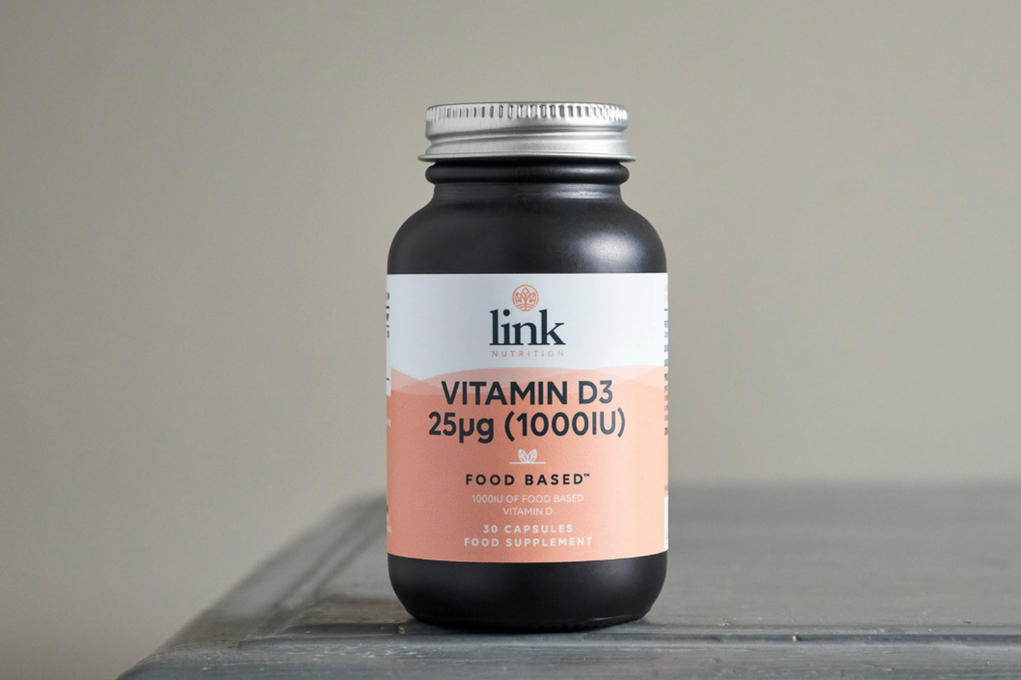Why vitamin D is so important - what's the latest?
12th November 2019 / Health / News
Why vitamin D is so important - what's the latest?
Emily Shannon

Vitamin D, it’s often called the sunshine vitamin, but what’s all the fuss about? ! It’s something that is so important during the winter months with sunshine in scarce supply. The first thing that we love about vitamin D is that it's different from all the other vitamins; why? Well, it’s because it’s the only ‘vitamin’ that our bodies can actually make itself. The wonders of vitamin D don’t stop there! Vitamin D is, in fact, a hormone.
Sunlight is essential for our bodies to be able to make vitamin D because the majority of it is made through the synthesis of vitamin D in our skin. Worryingly though, deficiency of this essential vitamin is now seen in 1 in 5 people in the UK, we know, scary hey?!
WHY VITAMIN D IS SO IMPORTANT?
You may be wondering why vitamin D is so important. Well, vitamin D is essential for so many different functions within our body. It works synergistically with other essential nutrients, aiding the absorption of important minerals like calcium and phosphorus within our gut. Vitamin D also plays an integral role in calcium homeostasis and bone metabolism. Not only this, but it also plays an important role in the maintenance of a healthy immune system. The diverse benefits of this super vitamin give even more reason to supplement this winter.
WHEN TO SUPPLEMENT?
During the winter months, between October and March, the sun is not in the correct angle for our bodies to absorb the sunlight we need to make the vitamin D our body requires. This means that we must make sure that we are getting enough through the foods that we eat, however this can sometimes be tricky, so most of us require a daily supplement.
VITAMIN D DEFICIENCY
Here are some possible side effects of vitamin D deficiency:
- A weakened immune system
- Fatigue and tiredness
- Weakened bones and teeth
- Poor musculoskeletal health which can lead to rickets, increasing the risk of falls and poor muscle strength
THE LATEST ON VITAMIN D AND BONE HEALTH
Vitamin D is required for bone growth through cells called osteoblasts, it’s these cells that are responsible for the formation of new bone. Without enough vitamin D, our bodies aren’t able to effectively absorb calcium which is essential for optimal bone health. But why? It’s because there is a unique relationship between vitamin D and a hormone called parathyroid hormone (PTH for short).
We know that vitamin D is required for our intestines to absorb calcium, but vitamin D must first be ‘activated’ by PTH. It is then the role of PTH to regulate our calcium levels. When the body doesn’t get enough vitamin D, it’s unable to absorb enough calcium from the foods that we eat. But, the body still continues to secrete PTH which essentially ‘steals’ calcium from bones, this can lead to the weakening of our bones so getting enough vitamin D should be at the top of all of our checklist this winter!
THE LATEST ON VITAMIN D AND OUR IMMUNE SYSTEM
Vitamin D helps to supercharge our immune system, yes you heard that right! Our immune cells have vitamin D receptors, this means that these immune cells are able to synthesize active vitamin D. As a result, vitamin D can modulate immune responses, which means that it is a great immune-booster! It’s because of this that vitamin D deficiency is associated with autoimmunity and increased susceptibility to infections. We don’t know about you but we’re definitely keeping our levels topped up this winter!
LINK NUTRITION’S VITAMIN D
Link Nutrition’s Food Based vitamin D provides the bio-active form of the fat-soluble compound D3 (which is the bioactive form of vitamin D, which our body usually gets from sunlight). Taking just 1 capsule per day of 1000IU (providing 25µg) is a maintenance dose, the NHS currently recommends that everyone in the UK need 10 µg a day.
It is important to get checked to see whether you are deficient in Vitamin D, this will help you to determine to what scale you need to supplement with additional vitamin D. The best way to get your vitamin D level checked is to either go to your doctor or purchase an at-home testing kit, which you can purchase from either your pharmacy or online.
FOODS RICH IN VITAMIN D
Whilst a vitamin D supplement is often the best way to get the extra vitamin D that we need in the winter months, getting vitamin D from food sources is also beneficial. Here are a few of the best food sources of Vitamin D to make sure your levels are always kept topped up.
- Oily fish (salmon, sardines and trout)
- Egg yolk and milk
- Breakfast cereals are often fortified with vitamin D
- Mushrooms
From The Blog
-

22nd December 2022 / Health / News
New Year Resolutions You Can Actually Keep
New Year resolutions to shed unhealthy habits and create healthy new ones are always popular. Often expectations are high, but January is when our systems can have the least in the tank leading to...
Read article -

30th November 2022 / Health / News
Taking Vitamin D This Winter
As the days get shorter and we spend more time inside, we should start to think about our vitamin D levels. Vitamin D deficiency in winter months is super common, but the symptoms often go unnot...
Read article -

28th November 2022 / Health / News
8 Big Health Discoveries of 2022
Health Review 2022 One of the things we love about nutrition is that it is an evolving area of science with great discoveries happening all the time. We can apply these to our everyday lives in th...
Read article



